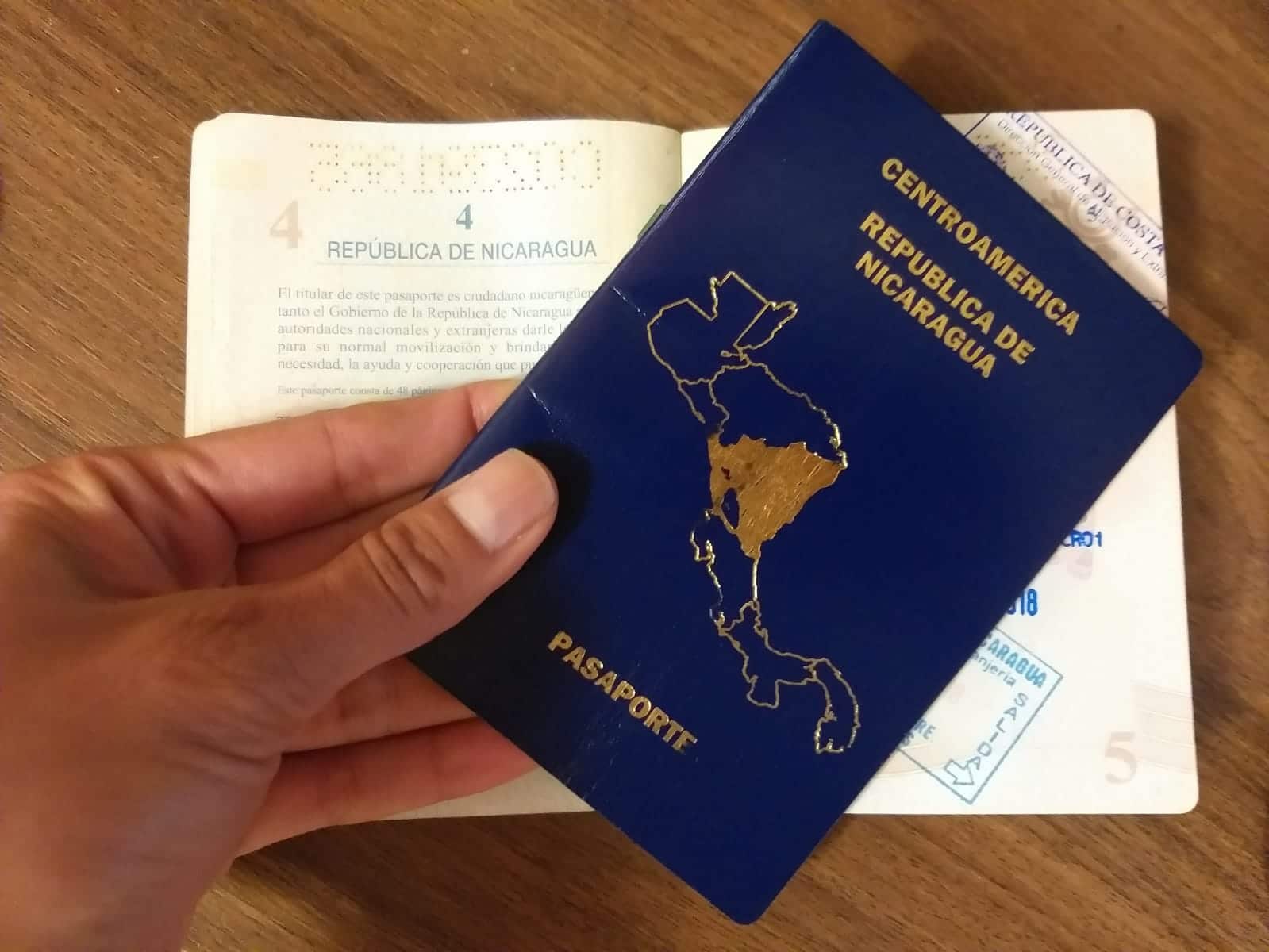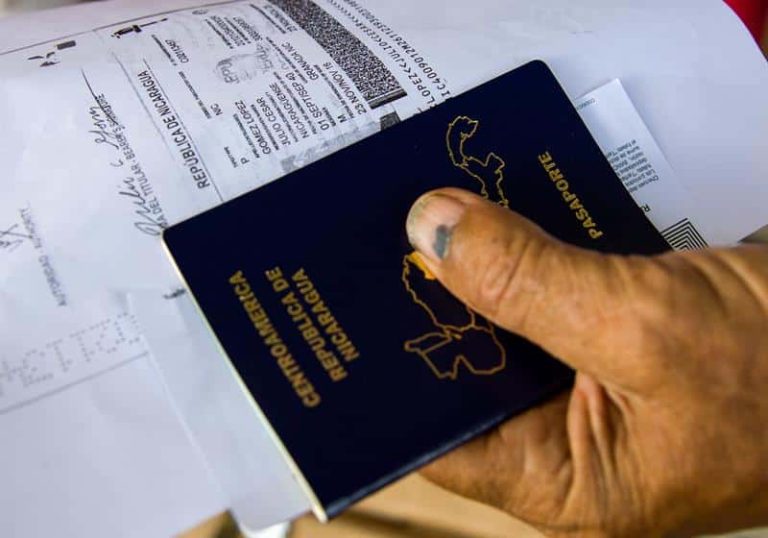12 de diciembre 2022

Nicaragua: Public Employees Hindered from Traveling to USA

PUBLICIDAD 1M
PUBLICIDAD 4D
PUBLICIDAD 5D
Currently, the dense fog of the Ortega-Murillo dictatorship does not allow to see more options inside the country

Nicaragua has been experiencing an emigration crisis for a long time now. Being the poorest country in Central America and one of the poorest in the continent has pushed the Nicaraguan population to migrate, be it in a regular or irregular manner. The need to find employment outside the country to support the expenses of the family that stays behind or else the desire to make a new life abroad has become a goal in the plans of many citizens.
Added to this, from 2018 to date the crisis in the country has worsened in every sense: political, social, economic, environmental, educational, security and above all human rights. Everything points to the fact that the country remains in a nosedive that won’t slow down and the risk of staying gradually stops being an option, which is why leaving sounds increasingly better than anything else.
This explains the huge lines at the Immigration offices in search of their travel document, a phenomenon that in this article can be referred to as “passport fever.” And so, it seems. It is impressive the number of people that crowd outside any Immigration office in order to obtain their passport.
Between renewals and first-time applicants, there are hundreds of procedures in process. The need for a passport is almost hysterical, since every day the crowds of people from early hours of the morning to be attended to are increasing.
According to the newspaper La Prensa, in its article of October 24, 2022, the General Directorate of Migration and Foreigners has provided by October of this year, 23,614 passports, to this must be added the many thousands that were previously delivered in 2021. The numbers continue to increase, many people who have made the decision to leave the country and others with the intention of having it given the increasing probability of migrating.
For the Nicaraguan population a passport is more important at this time and of greater value than the national ID Card. While with the identity card they carry out procedures in Nicaragua, with the passport they can leave the country and have an easier time finding employment in another country, something that is increasingly scarce in Nicaragua.
This migratory crisis, one more in the list of those mentioned above, is the exclusive responsibility of the Sandinista Government dictatorship, because the people are leaving due to political persecution and imminent risk for being opponents, for fear and uncertainty of the nation’s instability in every sense, due to a lack of jobs and academic opportunities, and also, and not less important, due to the increasing poverty and high cost of products and services.
Despite this, having so many arrows pointing to the dictatorship of being responsible for this and all other crises, the dictator Daniel Ortega has indicated that the United States government is to blame for the migration and even, in his shameless sermons, warns the US that the arrival of Nicaraguans is going to increase, holding the US responsible for this upcoming reality as well.
But this is not something new. It is not surprising coming from the dictator and his wife, since the entire national and international community already knows the way they operate.
This migratory and passport fever, the incessant desire and already elaborated plans to leave the country, are increasingly more common and easily perceptible among families and the community. The number of people who are not in their families or in the surrounding communities because they have already left and arrived elsewhere, or because they still are on their way to their destination, mainly to the United States, Spain, Costa Rica, Panama, Mexico, etc.
It is also outrageous to know that the same dictatorial government that pushes its own population to this terrible reality benefits from this, either by the amount of money it earns from the growing demand for passports, which is obviously paid by each citizen requesting it; by the increase in remittances obtained thanks to the migrants sending money to their families, or by the simple fact of expelling opponents from the country, as it has done already done on numerous occasions.
The latter has been corroborated by some investigative and journalistic works, such as the cases of people who gave interviews for the documentary made by journalist Otoniel Martinez of TV Azteca, entitled “Duele Respirar: Nicaragua” (Nicaragua: It is hard to breathe), who had to go into exile for having given statements, since their lives and freedom were in danger.
Otoniel himself, in another journalistic work related to the situation of migrants arriving in Mexico, met and interviewed these same sources again, who are now migrants eager to arrive to the United States to be safe.
The subject of passports and departures from the country is becoming increasingly chaotic in Nicaragua and the population’s options are almost always reduced to irregular migration, as regular travel to countries such as the United States, Mexico and Costa Rica has become increasingly difficult.
The US visa rejection rate, for example, is up to 63% for Nicaraguans, the highest percentage in Latin America. This in turn explains the number of 126,287 Nicaraguans in irregular migration detained between January and September of this year by the United States immigration authorities, according to the Bureau of Customs and Border Protection.
Despite the risks posed by irregular migration, such as the well-known cases of people kidnapped and murdered by organized crime in Mexico, drowned in the Rio Grande and found dead in the dessert, Nicaraguans embarked on that journey because in the end, in Nicaragua they are not safe, and the sun seems to shine more brightly beyond the borders of the long-suffering land of lakes and volcanoes.
Currently the dense fog of the Ortega-Murillo dictatorship does not allow to see many options inside the country, where incidentally last November 6th another fraud was consummated in the municipal elections.
This article was originally published in Spanish in Confidencial and translated by Havana Times
PUBLICIDAD 3M
Estudiante de Ciencias Políticas. Antes estudió Medicina en la Universidad Nacional Autónoma de Nicaragua (UNAN), de la que fue expulsado por su participación en la Rebelión de Abril de 2018. Se dedica a la investigación social con enfoque en educación superior y derechos humanos a la educación, y derechos de los jóvenes.
PUBLICIDAD 3D